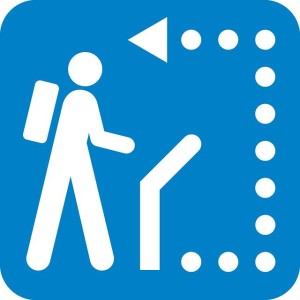Pathfinding can be difficult. In fact, back in September, big picture thinker Seth Godin posted a blog about finding your way to the next path. I saved the post, mulling it over because it has a lot of implications and relevancy for job seekers. 
For many people in the workplace, pathfinding means finding a new job, better job, or a promotion. Or even a completely different field or purpose.
And some people just seem to get their a lot easier than others.
It doesn’t help that we are pressured in school to “make a choice” rather than prepare graduates to make “several choices.”
Things have changed, and with so much knowledge easily accessible, one could conceivably change careers into a completely unrelated field with relative ease.
But how do you figure out that next career step? By pathfinding.
The whole concept of pathfinding means that there are a series of logical steps that need to take place from where you are right now (Point A) to get to where you want to go (Point B).
Pathfinding means understanding that you cannot simply flip the switch and be able to function competently in the new field or immediately find that perfect job.
It takes a lot of pre-planning and one more special ingredient.
You need to be brave.
Change is scary. It’s a lot easier to sit at the desk of a job you hate and dream about better places to work.
The hard work is actually doing something about it.
But what guarantees do you have that you aren’t simply jumping from the frying pan into the fire?
Guess what: there are no guarantees. It’s a risk you have to take.
And that’s precisely where a lot of people freeze up and fall into analysis paralysis.
By pathfinding, you are finding your way into the next career step by breaking the process into mindfully-planned, digestible chunks to create those stairways.
Being brave enough to start the process when there are so many unknowns will actually give you strength during the actual transition.
Here are some tips for pathfinding your way into the next career step:
- Ask a mentor for advice
- Work with a career coach
- Use personality / interest assessments
- Use self-paced guides that help you explore additional career options (i.e. “What Color is Your Parachute”)
- Conduct informational interviews
- Follow thought leaders
- Ask someone in the industry
- Belong to a professional association
Each of these resources can help you identify what you want to do next, and provide directions to getting there as part of pathfinding your way to the next career step.
